- Alumni HOME
- Toyo University Athletes of the Olympic and Paralympic Games
Toyo University Athletes of the Olympic and Paralympic Games
-
Zenji Okuzawa
Graduated 1960, Department of Economics, Faculty of Economics
- Previous Events, Sport/Event
-
Tokyo (1964)
Athletics/ 3000m Steeplechase
-
Sachiko Saito
Graduated 1969, Department of Business Administration, Faculty of Economics
- Previous Events, Sport/Event
-
Grenoble (Winter) (1968),
Speed Skating/ 500m, 1000m, 1500m
Sapporo (Winter) (1972)
Speed Skating/ 500m, 1000m
-
Nobuyoshi Miura
Graduated 1967, Department of Economics, Faculty of Economics
- Previous Events, Sport/Event
-
Mexico City (1968)
Athletics/ 3000m Steeplechase
-
Akihiko Umeda
Graduated 1970, Department of Business Administration, Faculty of Business Administration
- Previous Events, Sport/Event
-
Munich (1972)
Wrestling/ 48kg Freestyle (6th place)
-
Koichiro Hirayama
Graduated 1970, Department of Law, Faculty of Law
- Previous Events, Sport/Event
-
Munich (1972)
Wrestling/ 52kg Greco-Roman (silver medal)
Montreal (1976)
Wrestling/ 52kg Greco-Roman (bronze medal)
-
Mikiko Sone
Graduated 1975, Department of Japanese Literature, Faculty of Literature
- Previous Events, Sport/Event
-
Montreal (1976)
Athletics/ High Jump
-
Eitetsu Inoue
Graduated 1977, Department of Business Administration, Faculty of Business Administration
- Previous Events, Sport/Event
-
Montreal (1976)
Judo/ 80kg (bronze medal)
-
Atsuji Miyahara
Graduated 1983, Department of Business Administration, Faculty of Business Administration
- Previous Events, Sport/Event
-
Los Angeles (1984)
Wrestling/ 52kg Greco-Roman (gold medal)
Seoul (1988)
Wrestling/ 52kg Greco-Roman (silver medal)
-
Yasutoshi Moriyama
Graduated 1985, Department of Business Administration, Faculty of Business Administration
- Previous Events, Sport/Event
-
Los Angeles (1984)
Wrestling/ 82kg Greco-Roman
Seoul (1988)
Wrestling/ 90kg Greco-Roman
Barcelona (1992)
Wrestling/ 90kg Greco-Roman
-
Fumio Imamura
Graduated 1989, Department of Economics, Faculty of Economics
- Previous Events, Sport/Event
-
Barcelona (1992)
Athletics/ 50km Race Walk
Sydney (2000)
Athletics/ 50km Race Walk
-
Hitoshi Fukuda
Graduated 1986, Department of Business Administration, Faculty of Business Administration
- Previous Events, Sport/Event
-
Barcelona (1992)
Roller Hockey (demonstration sport)
-
Takashi Kurosu
Graduated 1992, Department of Commerce, Faculty of Business Administration
- Previous Events, Sport/Event
-
Atlanta (1996)
Baseball (silver medal)
-
Makoto Imaoka
Graduated 1997, Department of Law, Faculty of Law
- Previous Events, Sport/Event
-
Atlanta (1996)
Baseball (silver medal)
-
Takayuki Miura
Graduated 1989, Department of Economics, Faculty of Economics
- Previous Events, Sport/Event
-
Nagano (winter) (1998)
Ice Hockey
-
Hiroshi Tanaka
The Faculty of Law, Department of Law
- Previous Events, Sport/Event
-
Nagano (winter) (1998)
Figure Skating/ Ice Dance
-
Takumi Saito
Graduated 2015, Department of Economics, Faculty of Economics
- Previous Events, Sport/Event
-
London (2012)
Athletics/ 20km Race Walk
-
Ryota Murata
Graduated 2008, Department of Business Administration, Faculty of Business Administration
- Previous Events, Sport/Event
-
London (2012)
Boxing/ 75kg Middleweight (gold medal)
-
Katsuaki Susa
Graduated 2008, Department of Law, Faculty of Law
- Previous Events, Sport/Event
-
London (2012)
Boxing/ 52kg Flyweight
-
Miki Uchida
Graduated 2017, Department of Business Administration, Faculty of Business Administration
- Previous Events, Sport/Event
-
London (2012)
Swimming/ 4x100m Free Relay (7th place)
Rio de Janeiro (2016)
Swimming/ 100m Freestyle, 4x100m Medley Relay, 4x100m Free Relay (8th place)
-
Daisuke Matsunaga
Graduated 2017, Department of Civil and Environmental Engineering, Faculty of Science and Engineering
- Previous Events, Sport/Event
-
Rio de Janeiro (2016)
Athletics/ 20km Race Walk (7th place)
-
Suehiro Ishikawa
Graduated 2002, Department of Economics, Faculty of Economics
- Previous Events, Sport/Event
-
Rio de Janeiro (2016)
Athletics/ Marathon
-
Hisanori Kitajima
Graduated 2007, Department of Computational Science and Engineering, Faculty of Engineering
- Previous Events, Sport/Event
-
Rio de Janeiro (2016)
Athletics/ Marathon
-
Yuta Shitara
Graduated 2014, Department of Economics, Faculty of Economics
- Previous Events, Sport/Event
-
Rio de Janeiro (2016)
Athletics/ 10000m
-
Asa Ando
Graduated 2019, Department of Business Law, Faculty of Law
- Previous Events, Sport/Event
-
Pyeongchang (winter) (2018)
Alpine Skiing/ Slalom

Keep relaxed and do what you’ve always done. There is brilliance to athletes competing hard!
My message to the athletes is, “don’t be too eager.”
All of you have already produced
results in the World Championships and World Cups. So, there is no need to feel extra
pressure just because it is the Olympics. Just be relaxed as always.
Being nervous is
proof you are focused.
I know you have many mixed emotions, but more than the results,
the true magnificence of the Olympics is in the athletes giving it their all.
Do your
best!
- Atsuji Miyahara
Graduated 1983, Department of Business Administration, Faculty of Business Administration
Previous Events, Sport/Event
Los Angeles (1984)
Wrestling/ 52kg Greco-Roman (gold medal)
Seoul (1988)
Wrestling/ 52kg Greco-Roman (silver medal)
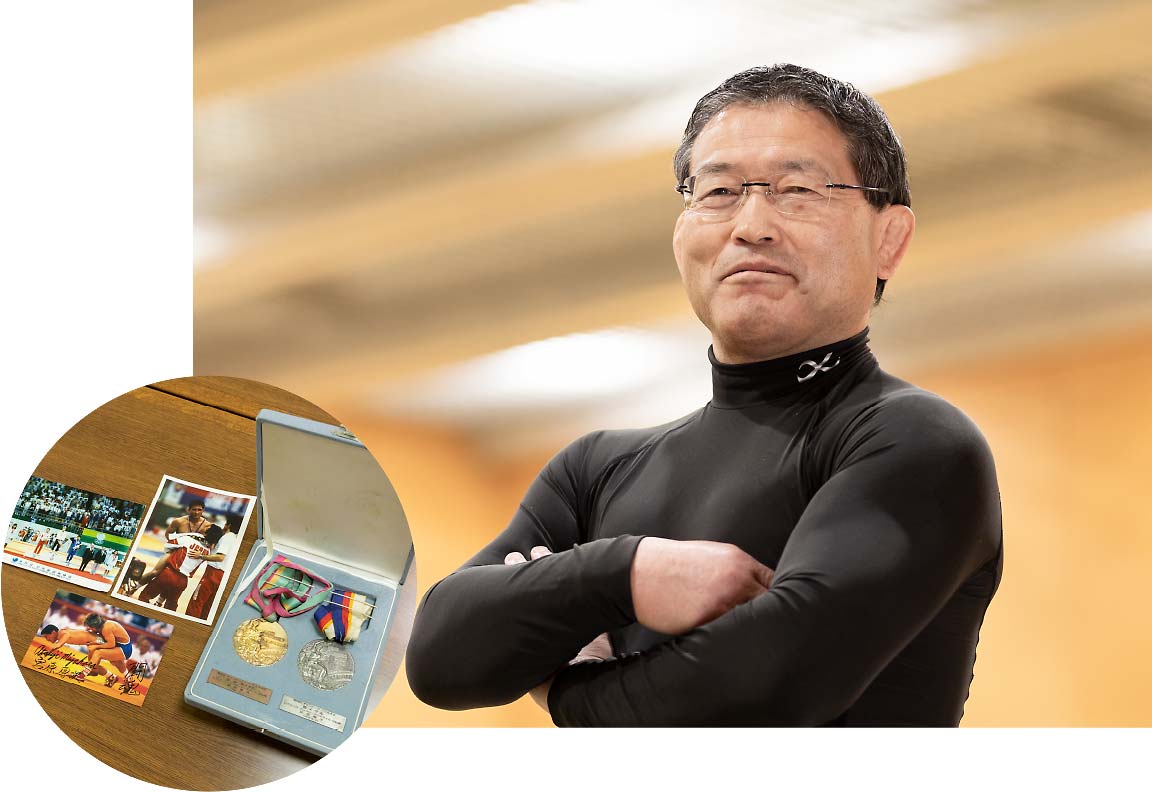
Compete to get a medal, not to finish in the top eight. Leave your mark on history!
I’m sure you are not letting even a second go to waste in your preparations for the
Olympics.
In practice and your personal lives.
In that case, then you must know the
best way to approach the Olympics.
For me, being a zainchi (Japanese term for ethnic
Koreans with permanent residency in Japan) Korean, it was a lonely Olympics as I wasn’t
supported by Japan or Korea.
But for you, please use the expectations of those around you
as strength and approach the Olympics with the confident mindset of “I will get a
medal!”
Leave your mark on history!
- Eitetsu Inoue
Graduated 1977, Department of Business Administration, Faculty of Business Administration
Previous Events, Sport/Event
Montreal (1976)
Judo/ 80kg (bronze medal)
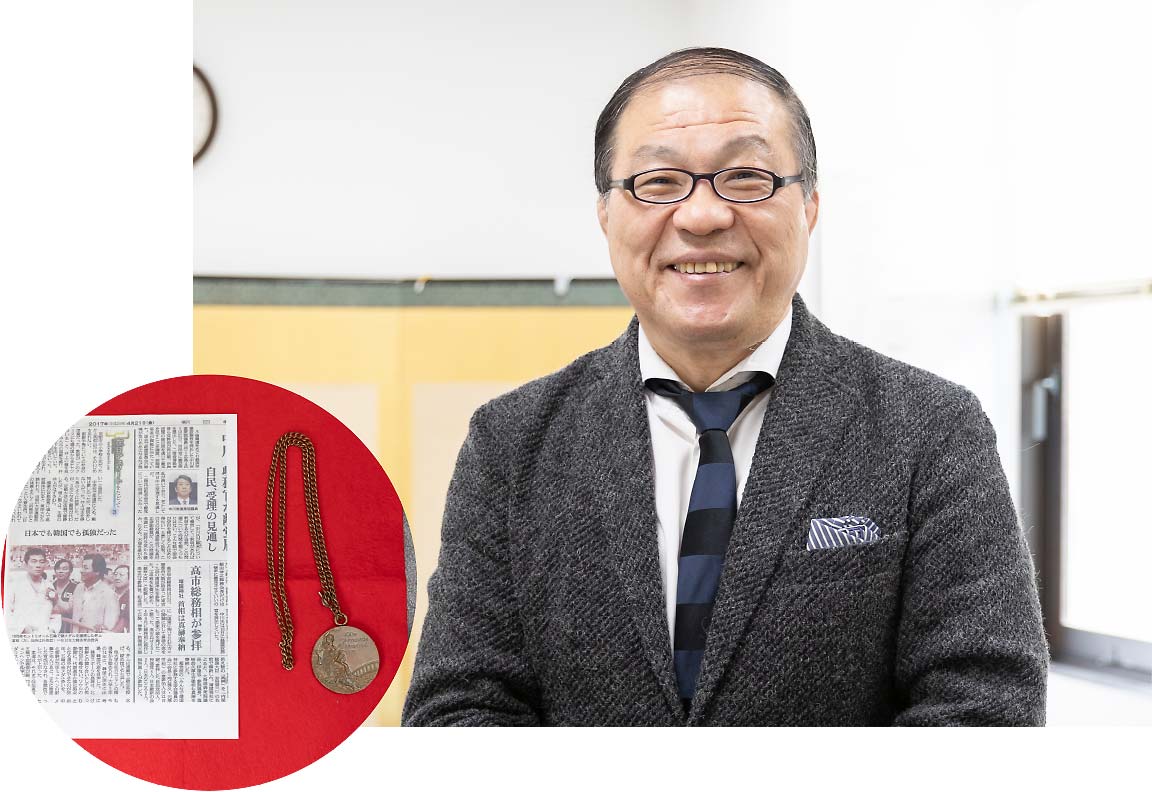
In the end, it is all about believing in yourself. I want the athletes to keep their cool!
The Tokyo Games will start soon.
To the athletes who made many sacrifices to win their
place at the Olympics, I want to offer the words, “Believe in yourself.”You cannot perform
better at the Games than in practice.
I want the athletes to keep their cool at the games
by trusting their efforts up until now.
I want them to be grateful that their activities
are supported by many people and return the favor by promoting their sports after the Games.
- Takashi Kurosu
Graduated 1992, Department of Commerce, Faculty of Business Administration
Previous Events, Sport/Event
Atlanta (1996)
Baseball (silver medal)
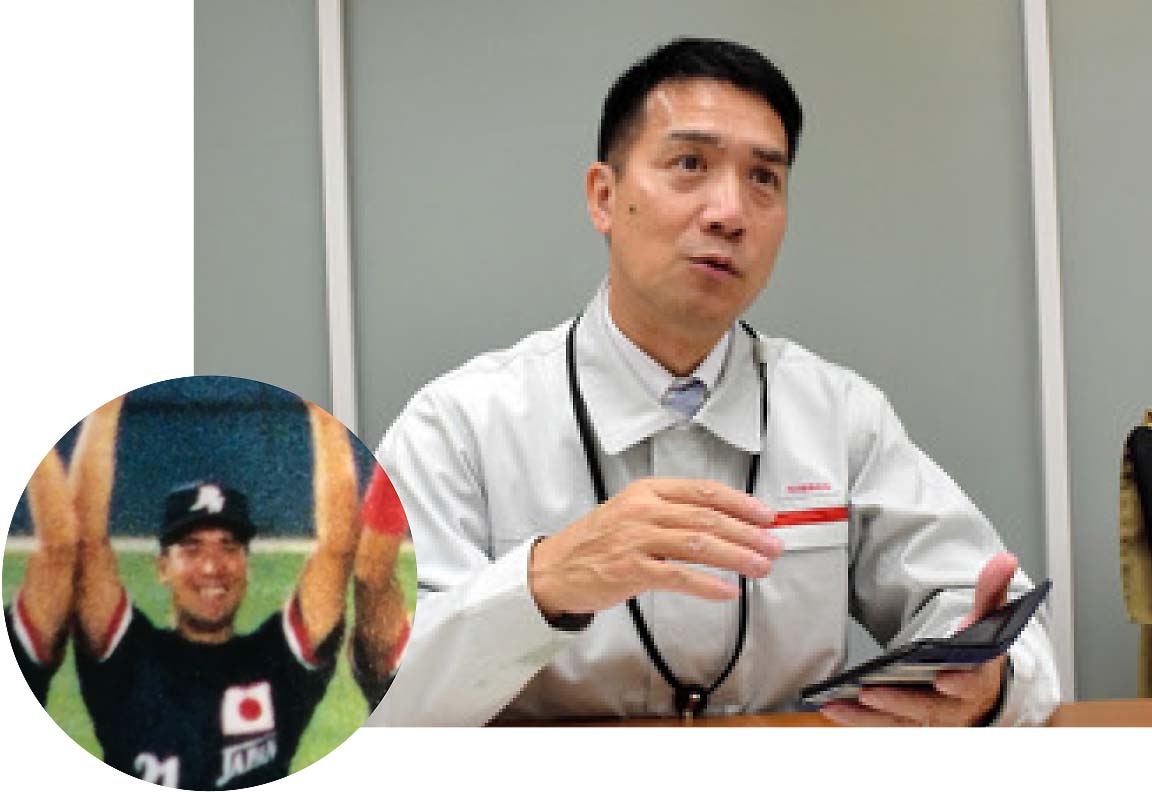
We are proud of our Toyo University athletes.I am cheering for them!
In 1964 I was captain of the Automobile Club in my 4th year of university, and I
participated as a volunteer transporting Olympic personnel.
I remember that the Hungarian
athlete I was responsible for won bronze in the Shot Put with an excellent performance.
I
always keep an eye on the Toyo University sports teams, and I feel proud every time they
compete.
It seems there will be several Toyo athletes competing this year too, and I will
cheer them on.
- Koji Muto
Graduated 1965, Department of Economics, Faculty of Economics
Participated Event
Tokyo (1964)
Transportation volunteer
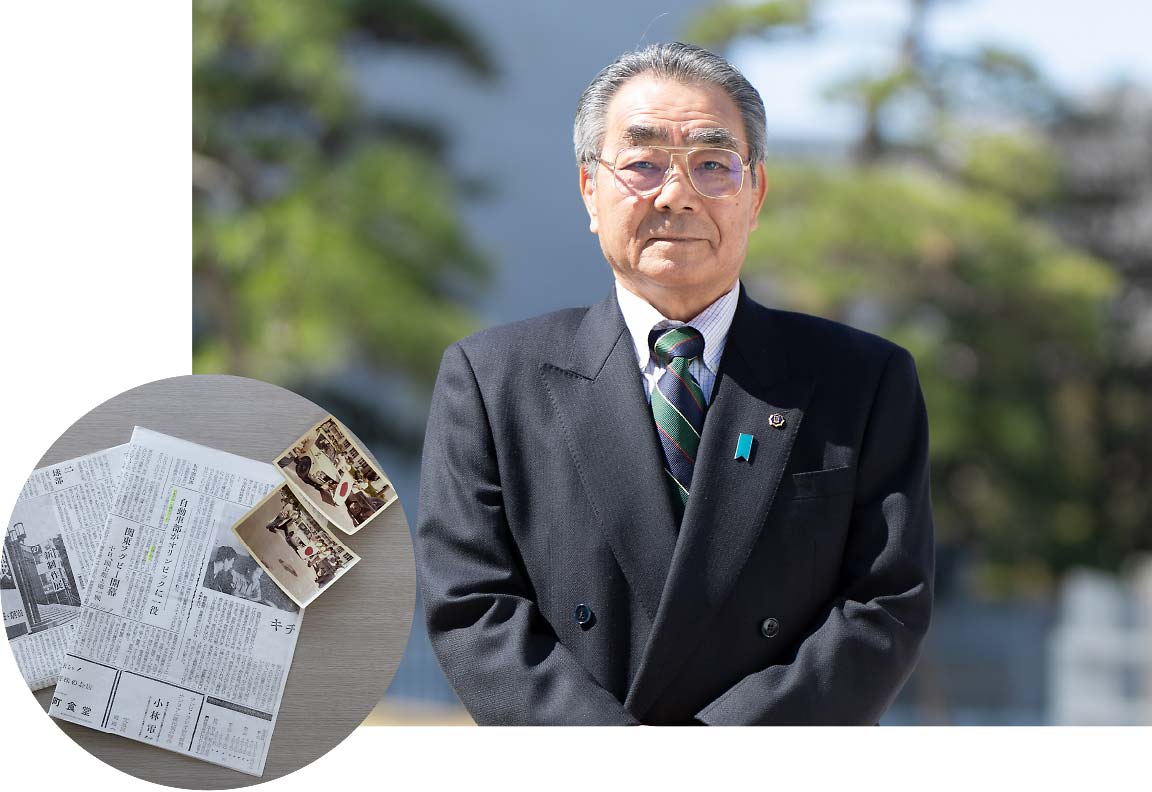
Competing at the Olympics as a Coach
The Hinomaru on the Center Pole
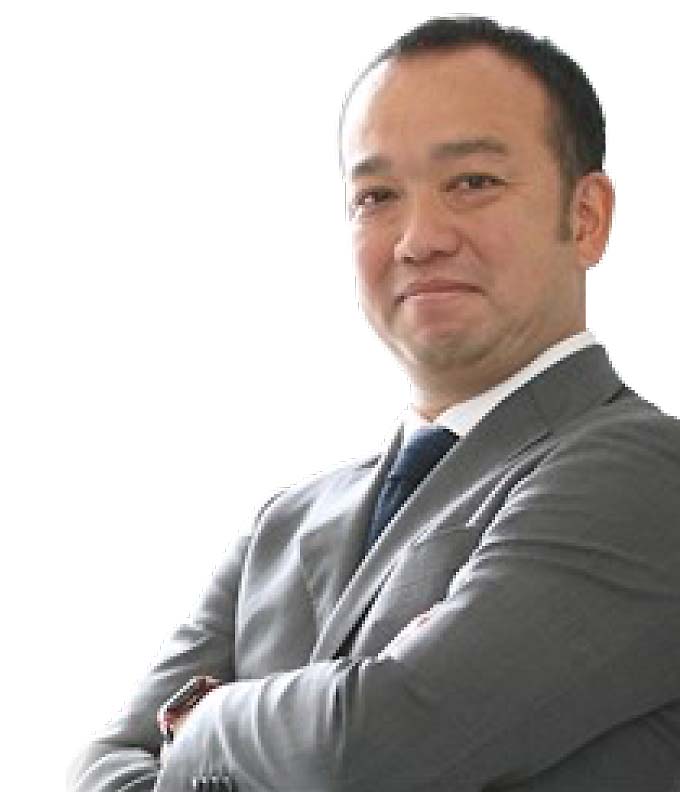
I believe the decision to hold the 2020 Olympic Games in Tokyo was made in September
2013.
That year was also when all eyes in Japan were focused on men’s sprinting, thanks to a
high school student named Yoshihide Kiryu running an astonishing 10.01. The following year, I
came to Toyo University with Kiryu, and we began to train for the Tokyo Olympics. At that time,
there was no way of knowing that COVID-19 would occur, and the Olympics would be postponed to
2021. However, I believe in our remaining possibilities, and together with Kiryu we are giving
it our all every day with our eyes on the Olympic stage. At the Tokyo Games, a big goal of ours
is to achieve results in the 100m, but another major goal is to win gold in the 4x100m
relay.
I have been Japan Team Coach since 2008, and I have been competing together with the
athletes on the world stage. In 2016, the four “relay samurai,” including Kiryu, swept past the
UK and US teams and won a silver medal behind a Jamaican team lead by Usain Bolt. We were neck
with the Jamaicans until the baton was handed to Bolt, so rather than losing to Jamaica, it felt
like we lost to Bolt. Bolt subsequently retired, and the current Jamaican team is not as strong.
At the 2019 World Athletics Championships in Doha, with Kiryu running the third leg and the 9.97
Sani Brown running the anchor leg, the team won bronze with a new Asian record of 37.43. It
would not be unusual for this record to be a gold-medal-winning record, so we were ready to face
the Tokyo Games with the realistic goal of a Gold Medal.
Incidentally, I have a certain
affection for the 4x100m relay. At the 1996 Atlanta Olympics, my first Olympic Games as a 4th
year student, we expected to finish in the top eight. But unfortunately, we were disqualified in
the qualifiers for a baton error. After that, I wasn’t able to qualify in the 100m individual
event, but I was able to finish in the top eight in the 4x100m relay at the Asian Games and
World Athletics Championships. Then at the age of 30, as the culmination of my career as an
athlete, I went to the 2004 Athens Olympics. I went into the Olympics with the confidence that
we would win a medal, but I made a mistake at the start, and we finished fourth. As I could no
longer compete age-wise, I decided to work with the Japan relay team as a coach and member of
staff. I was wholeheartedly focused on regaining the medal that I failed to win, and at the 2008
Beijing Games, we won a bronze medal (later advanced to silver). Subsequently, the level of
Japanese sprinting is increasing with the emergence of many strong sprinters such as Kiryu, Sani
Brown, Cambridge, and Yamagata.
“The Hinomaru on the center pole” is the slogan of the
Japanese swimming team, taught to me by Coach Hirai. The men's 4x100m team has finally become
able to set the same goal as the swimming team, and this is deeply moving as someone who has
been involved with the team as an athlete, coach, and member of staff.
We do not know what
will happen with the Olympics that have been postponed until 2021. However, I pray that the
Olympics can be held in a way that the Japanese people and people worldwide welcome. If this can
come true, then I feel that the athletes will respond to everyone’s expectations.
- Hiroyasu Tsuchie
-
Professor, Department of Business Law, Faculty of Law
Coach, The Sprints Division, Toyo University Track and Field Club
Coach for the Olympic Games, Japan Association of Athletics Federations
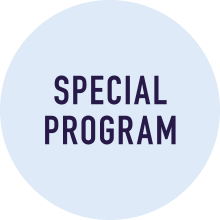 Toyo University Lecture on the Olympic and
Paralympic Games
Toyo University Lecture on the Olympic and
Paralympic Games
A lecture where students learn diverse values from across the world with the Games as the subject matter
I want everyone to contemplate the meaning of the Olympic and Paralympic Games once again.
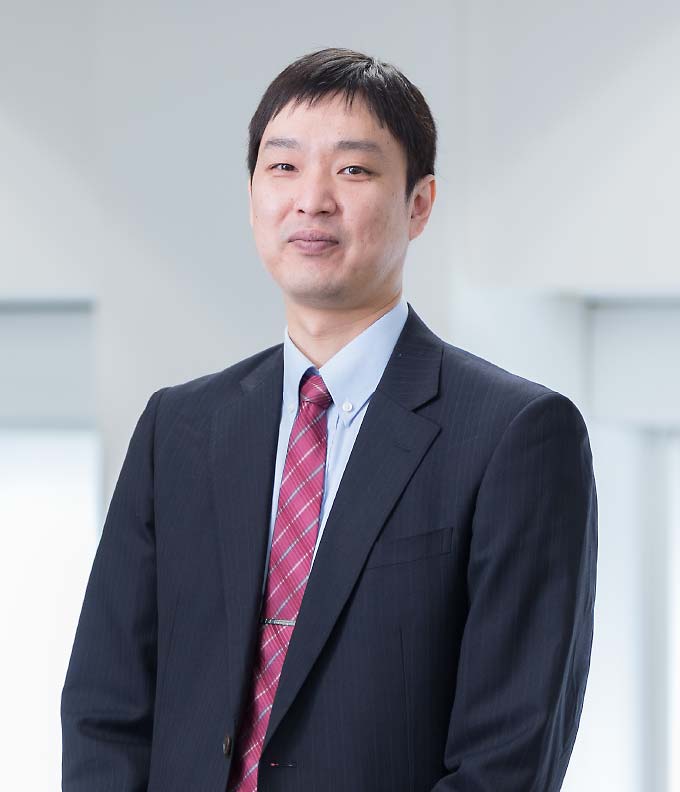
The spirit of the modern Olympics (Olympism) is built on the philosophy of contributing to
education, international cooperation, and the realization of world peace through sport.
The
Olympics is a time when we put down weapons and enjoy sport together. Competing fairly,
understanding each other's differences in thinking through close cooperation, and fostering a
spirit of friendship. In modern times where wars persist in all parts of the world, the peace
process that the modern Olympics aims to achieve continues to have a significant
meaning.
However, Tokyo 2020 seems slightly different, having been rocked by the crisis of
postponement and reorganization due to the impact of COVID-19. Until now, deepening mutual
understanding through competition was the epitome of the Olympics Games, with athletes from all
over the world coming together and spending time with one another in the Athlete’s Village and
interacting with the host nation's culture. However, COVID-19 has made people keep physical
distance away from others. In the operation of the Games, it is demanded that people do not get
together. In other words, the Olympic philosophy remains the same, but we are standing at a
crossroads where we should think about the nature of the Olympics Games.
Toyo University (in
1887) and the modern Olympics (in 1896) were founded at almost the same time, and both have
existed throughout the same eras. During this time, Toyo University has produced over 30
Olympians and many medalists.
Toyo University has a good relationship with the Olympics, and
since 2015 when the decision was made to hold the 2020 Games in Tokyo, the “Lecture on the
Olympic and Paralympic Games” has been held as a university-wide course. It is an omnibus
lecture that utilizes the strengths of a university, and Toyo University faculty give
multifaceted talks on the Olympic and Paralympic Games from the perspective of their
specialization. Since its inception, the lecture has been popular, with around 1300 students
taking the AY2021 spring semester online lecture.
With the eyes of the world on the Tokyo
2020 Games, I want Toyo University students to contemplate the value and meaning of the Olympic
and Paralympic Games once again carefully. No matter what path you take, I am sure that the
spirit of philosophy that you fostered at Toyo University will be something you value for the
rest of your lives.
- Hironori Tanigama
-
Professor, Department of Law, Faculty of Law
Coach, Toyo University Basketball Club
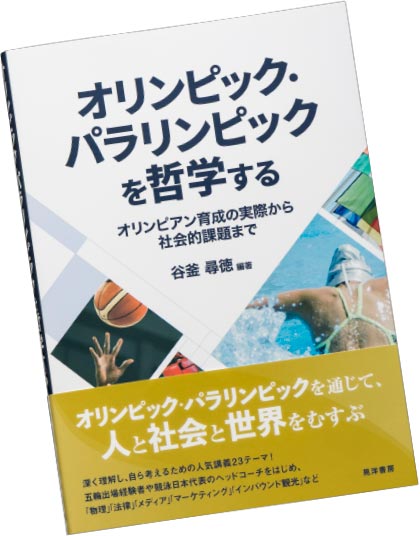
(Koyo Shobo)
Deeply philosophizing and learning about the Olympic and Paralympic Games through multiple perspectives, including the spectacular competition of athletes and the reality of athlete support, social issues behind the Games (doping, political exploitation, discrimination, economic disparity, etc.), in addition to learning through the fields of physics, nutrition, peace studies, law, and tourism studies.
- CONTENTS -
- Alumni HOME
- Toyo University and the Olympic and Paralympic Games
- Toyo University Athletes of the Olympic and Paralympic Games
- Ten Years on from the Earthquake
Their commitment and future - During COVID, Post COVID-19
- A Roundtable Discussion with the President and Vice Presidents
- Into the New Future of the Tourism Industry
- What is Happening to Student-Athletes in during COVID?
- Announcements from Toyo University
